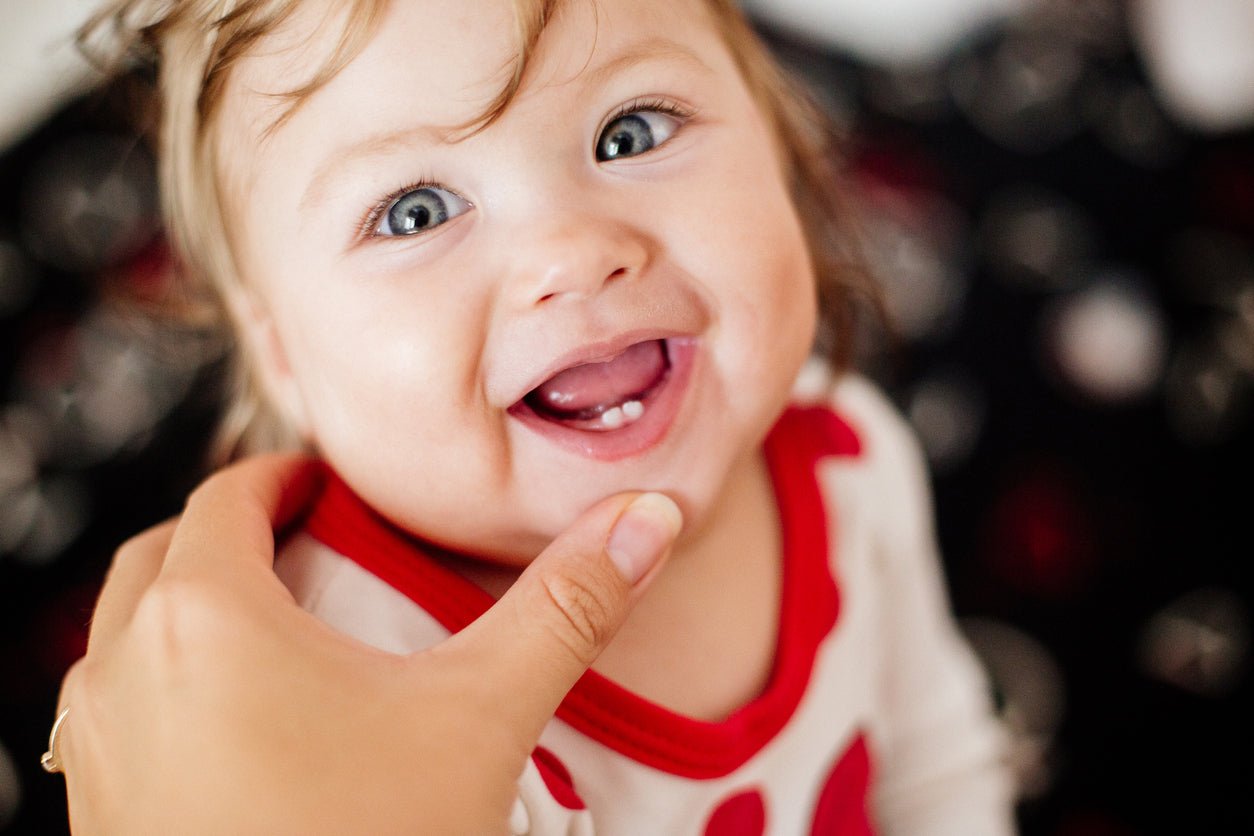
Mar 04 , 2021
When Do Babies Start Teething?

Your baby’s teeth will make their grand, grumpy entrance between 3 and 12 months old or later. Here are some common signs your little one is teething, along with remedies that will ease baby’s discomfort.
Every baby experiences the start of teething differently: Some have virtually no symptoms, while others suffer through teething pain and fussiness for months.
But if you know the signs to look out for, the timing of baby teething, and home remedies you can use to alleviate teething discomfort, it can make it easier for your baby (and you) to get through this particular milestone.
When do babies start teething?
Teething symptoms can precede the actual appearance of a tooth by as much as two or three months. Most babies get their first tooth around 6 months old, though when those first tiny pearly whites make their appearance can vary quite a bit from baby to baby.
Some infants’ first teeth erupt as early as 3 months old, while others don’t get theirs until after the first birthday. In other words, there’s a wide range of normal in terms of when teething in babies starts.
The 8 best teething remedies
You can help alleviate your baby’s teething discomfort with these mom-tested remedies:
- Chewing. Teething babies love to chew, and for good reason: The gumming action provides counter-pressure, which relieves the aching of new pearly whites pushing up and out into the mouth. Bumpy rubber teething rings, rattles and other chewy, soft toys work well (including, as your baby has probably figured out, the plastic bumper on a crib rail). Chewing is even more effective when the object is cold and numbs the gums. Keep a supply of teething toys or wet washcloths in the fridge, rather than the freezer — very cold comfort can hurt sensitive gums just as much as an erupting tooth does.
- Counter-pressure. Your clean finger, teething toys with nubbly edges or a soft, wet toothbrush (without toothpaste) rubbed firmly on baby’s gums can provide the same soothing counter-pressure as teething rings and wet cloths. Your baby may balk at first because it might hurt initially, but it soon brings relief.
- Cold drinks. A bottle of cold water can offer chilly relief to achy gums for babies over 6 months (when water can be introduced). If baby doesn’t take a bottle, you can give (ice-free) water in a cup.
- Cold food. Refrigerated food such as yogurt, blended peaches and applesauce (once they’ve already been introduced to your baby) can be more appetizing than warm or room-temperature treats, and can ease achy gums. Or give frozen fruits like bananas and plums in a baby feeder mesh bag (so large chunks of food can’t pose a choking risk), but only under adult supervision and with baby sitting or propped upright.
- Pain relief. If chewing, rubbing and sucking chilly foods don’t do the trick, break out the baby acetaminophen — but only after checking with your pediatrician.
- Comfort. Extra snuggles, kisses and lots of patience are what a teething baby craves.
- Avoid numbing agents. Using rubbing alcohol on your baby’s gums is a no-go, and the Food and Drug Administration (FDA) also warns against using topical numbing agents, which can put children under age 2 at risk for reduced oxygen levels in the blood. The FDA also says parents should avoid any herbal or homeopathic teething gels and other meds, especially since some contain an ingredient that can cause heart problems and drowsiness.

